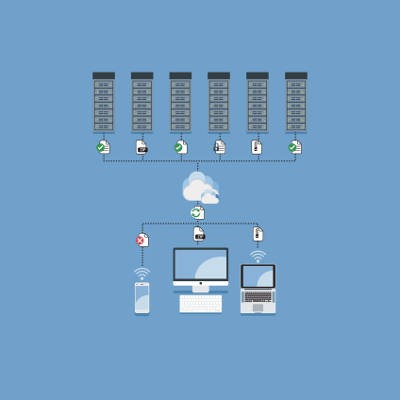Directive Blogs
Hosted Utility Computing Allows Businesses to Centralize Their IT
Your business relies on technology to ensure operations proceed smoothly, but the way that it’s managed can have a major impact on the way your company functions. Think about it like this: if you have software solutions hosted on different computers, but not in any centralized location, only those computers will be able to use these solutions--potentially hampering your staff’s ability to be productive. How can you make sure that this doesn’t become a major problem?
Centralizing your company’s IT assets should be a priority, as it promotes accessibility and flexibility for your entire company. When you have your business network assets centralized in one location, all sorts of possibilities open up. For example, you don’t have to worry about data being inaccessible at any point, which can often be a major hurdle.
For a lot of businesses, centralization means hosting company assets in a place where every single employee can access what they need to do their job. In essence, it means utilizing an innovative technology plan led by cloud computing. Cloud computing is the act of making assets available through the virtual environment known as the cloud. It can be something as simple as email access, or it can be something as complex as infrastructure hosting. Either way, the point that we’re trying to get across is that it’s a centralized location for important information.
There are many important factors to keep in mind that stem from centralizing your business’ IT. Here are just a few of them.
- Near-constant access: Hosting applications and programs in your cloud solution allows for access to just about anything that a business might need to remain active. Since access is near-constant, your employees will be able to work remotely if needed, allowing them to either catch up on missed work or get ahead from anywhere there is an Internet connection.
- User-based delegation: If your employees have access to all information on your network, you’re managing a considerable amount of risk. You can limit how much damage is done through limiting data access based on user roles. For example, the average employee doesn’t need access to personally identifiable information, like your HR department would.
- Security: Since most of your assets are located in one place, they will be easier to protect and secure in the long run. Of course, this type of security also needs to extend to devices that access this information. With the right amount of control over security, your business can fully take advantage of centralized IT assets.
We’d like to round this out by suggesting a centralized way of managing your IT assets as well, and that’s by outsourcing the responsibility to Directive. We can remotely monitor and maintain your infrastructure without the need for an on-site visit, thus redirecting valuable capital to projects that can help you build revenue. To learn more, reach out to us at 607-433-2200.



Comments